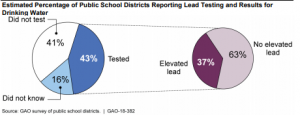In Support of the Humanities
 Given the Trump Administration’s denunciations of various Americans and numerous manufactured crises, we might easily overlook its attack on the humanities. For the third consecutive year, the Trump Administration has proposed closing down the National Endowment for the Humanities. It has also proposed major cuts for the National Archives Administration and the complete elimination of the National Historical Publications and Records Commission.
Given the Trump Administration’s denunciations of various Americans and numerous manufactured crises, we might easily overlook its attack on the humanities. For the third consecutive year, the Trump Administration has proposed closing down the National Endowment for the Humanities. It has also proposed major cuts for the National Archives Administration and the complete elimination of the National Historical Publications and Records Commission.
The justifications for these kinds of cuts are predictable. The endangered programs are said to be too costly, although the projected savings of only $28 million for National Endowment grants is not even a drop in the bucket compared to military and defense spending. More generally, supporters of the cuts are prepared to echo the public’s growing skepticism about the value of the humanities, particularly because they purportedly do not result in marketable skills.
What we really need, some might insist, is more funding for STEM programs or, at least, a greater commitment to programs that develop roll-up-your-sleeves practical approaches to problem-solving. These are the types of programs, it is claimed, that best prepare people for life and especially for work and employment in the context of the proverbial market economy.
Holding to the side the fact that STEM and skills funding already greatly exceed grants for teaching and research in the humanities, denigrators of the humanities overlook what might be gained from teaching and learning in such disciplines as art, classics, foreign languages, history, literature, music, philosophy, and religion. Each of these disciplines in its own way invites us to reflect on the most fundamental of questions: What does it mean to be human?

